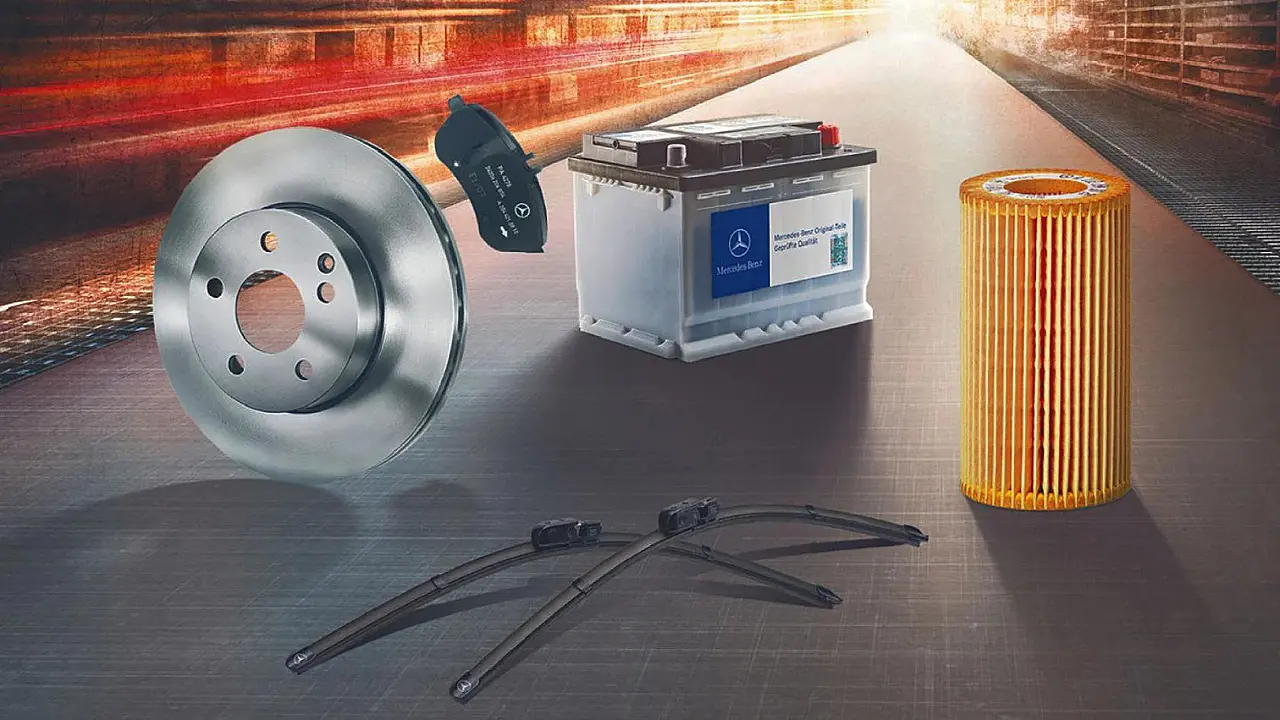
Counterfeit parts are one of the biggest threats to the automotive industry to date. These parts pose not only a safety risk to the end users but also to the brand reputation of the carmakers.
The European Office of Intellectual Property (EUIPO) forecasted that the annual global sales of counterfeit tyres and batteries are worth €2.2 billion and €180 million, respectively.
Moreover, according to the Authentication Solution Providers’ Association, counterfeit auto parts accounted for nearly 40% of total aftermarket components in retail outlets in India in FY20. Interestingly, global piracy and counterfeiting are predicted to have an economic value of $2.3 trillion by 2022.
In fact, the German luxury carmaker Mercedes-Benz noted that in 2021 alone, more than 1.86 million counterfeit products were seized in over 650 raids. To put it in perspective, the numbers suggest a 6% growth over 2020.
Now in order to stop this, the company aims to take rigorous action against such counterfeit products with a special focus on components such as brake discs, wheels and body and steering parts.
According to a study by the company, during the pandemic over the past two years, product pirates increasingly used online platforms and social media channels to offer counterfeit goods. The study found that counterfeit goods can be placed on online platforms at very short notice and sold with the support of social media.
Renata Jungo Brüngger, Member of the Board of Management, Mercedes-Benz Group AG, Integrity & Legal Affairs, noted that in 2021, more than 126,000 counterfeit products were removed from online platforms. Given this, the company has expanded its strategic and operational measures against counterfeiting in online trading with the new brand protection strategy comprising three pillars: detect, attack and prevent.
Under this, brand protection experts can identify counterfeiters by checking suspicious offers on online platforms, social media, or trade fairs worldwide.
Brüngger said, “The counterfeiting industry has organised crime structures and often generates higher profits than drug trafficking.
We are working closely with authorities around the world in order to curtail these structures and combat threats to road safety,” he added.
The study also noted that in many cases, organised counterfeiters produce their goods under inhumane conditions without regard for human rights, environmental standards and occupational safety.
To safeguard such situations from happening, the global Mercedes-Benz Intellectual Property Enforcement team works closely with customs and law enforcement authorities. It also regularly offers training events and information material to raise awareness among different target groups.
Lastly, the company expects customers and road users to also support the prevention of product counterfeiting in their daily lives and carefully check unusual offers.
The carmaker wants its customers to look out for such parts. Typical indicators of counterfeit products are an extremely low price, conspicuous product quality or sale via dubious online sources. It is often even possible to see from the product images or designations that the parts cannot be genuine since Mercedes-Benz doesn’t manufacture such items.